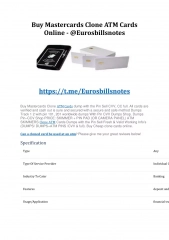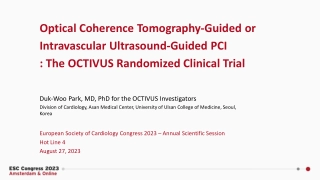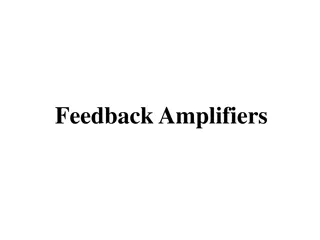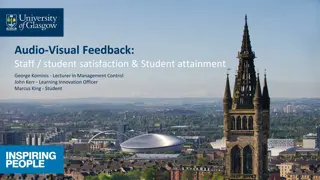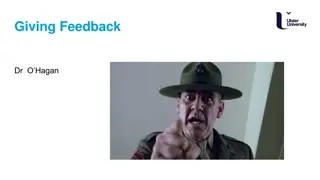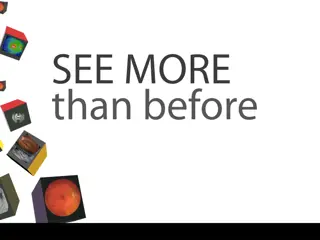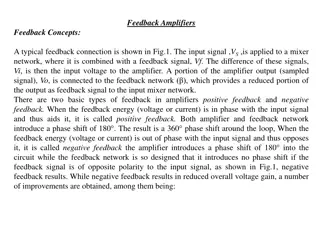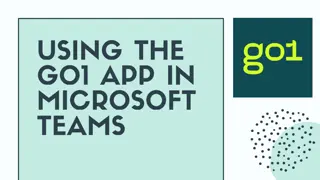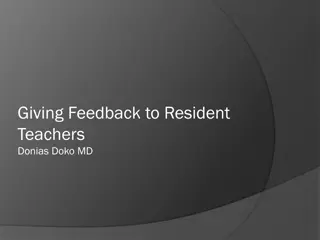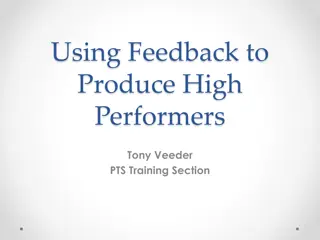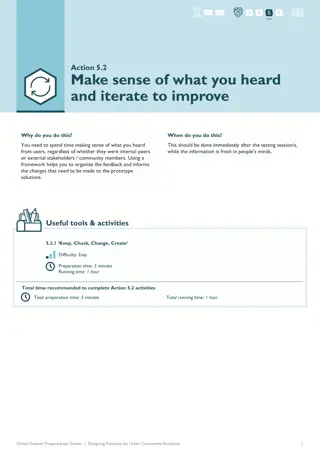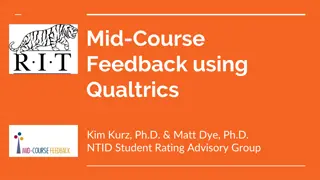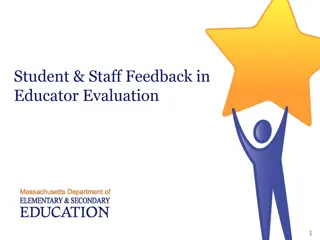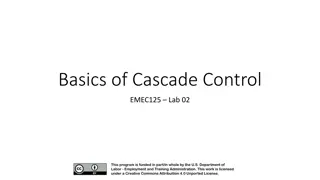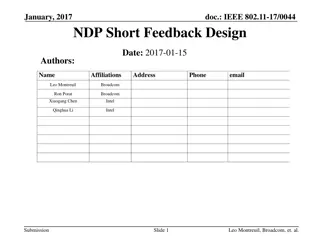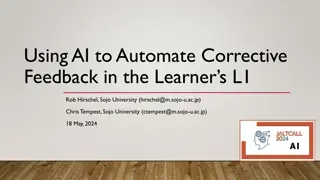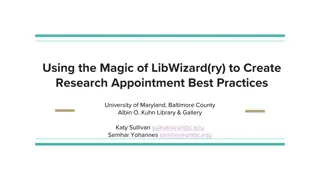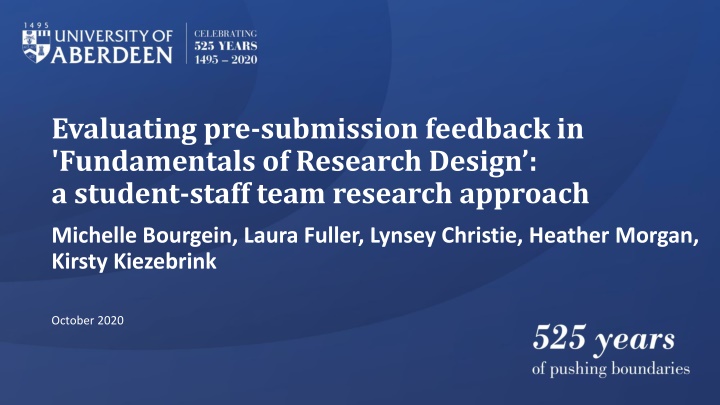
Student-Staff Research Approach: Fundamentals and Challenges
Explore the student-staff team research approach in the fundamentals of research design, focusing on pre-submission feedback, methodology, and reflections. This study delves into the experiences, pros, cons, and biases of using students in the research team, providing insights into high-stake assessments and research proposal development.
Download Presentation

Please find below an Image/Link to download the presentation.
The content on the website is provided AS IS for your information and personal use only. It may not be sold, licensed, or shared on other websites without obtaining consent from the author. If you encounter any issues during the download, it is possible that the publisher has removed the file from their server.
You are allowed to download the files provided on this website for personal or commercial use, subject to the condition that they are used lawfully. All files are the property of their respective owners.
The content on the website is provided AS IS for your information and personal use only. It may not be sold, licensed, or shared on other websites without obtaining consent from the author.
E N D
Presentation Transcript
Evaluating pre-submission feedback in 'Fundamentals of Research Design : a student-staff team research approach Michelle Bourgein, Laura Fuller, Lynsey Christie, Heather Morgan, Kirsty Kiezebrink October 2020
Purpose of this session Pre-submission Feedback Study MMSN, IAHS (PGT) Funded by Learning and Teaching Enhancement Programme (LTEP), Centre for Academic Development. Supported by QAA for HE, Scotland. Study is still on-going and data won t be presented Focus on reflection and challenges of study Using students in the research team Experiences Methodology .pros, cons, biases
Overview of course High stake assessment = 80% final mark Research proposal new skill for majority of class 12 boxes 12 weeks of course Opportunity for 10/11 x 20 minute individual tutor appointments 1 x 20 minute preSF video based
Overview of full project 3 cohorts 2018/19 students & 2019/20 students & staff Phase 1 ( students only) Phase 2 ( staff & students) Survey of all students Qualitative interviews Assessment Experience Questionnaire (V4.0) with students conducted by students Project specific questions with staff conducted by independent member of staff In Course data Performance on assessments Phase 3 ( Documents) Uptake of PreSF Analysis of video content Student record Data Sex, domicile, study route, age
Descriptive student data 2018/19 cohort 71 student ( valid email addresses) 2019/20 - 119 students Cohort Phase 1 - survey N (response rate) Phase 2 interview N (response rate) 2018/19 ( n=82) 16 (23%) 6 (38%) 2019/20 ( n=127) 42 (35%) 12 (29%)
Student interview sampling frame n=14 n=209 Home N=8 International N=6 Home N=110 International N=99 On campus N=6 On campus N=92 M M F F M M 7 M: 50 F 11 M: 25 F Online N=8 Online N=117 M F F F M F F F 15 M: 38 F 30 M: 33 F 58% PreSf M = Male F= Female preSF = YES NO
Interview conduct Thoughts from staff How do we select the students? Ethics of volunteering fair?
Interview conduct Thoughts from students Introduction & background Motivation to take part Overall experience of the project Consideration for future student volunteer projects
Introduction and background About us! Laura Fuller MSc Human Nutrition (On Campus) Michelle Bourgein MSc Clinical Nutrition (online) Completed FORD module Course experience working on qualitative projects & interviewing Worked together on final project
Motivation to take part Gain experience Practice what we had learnt on the course Continue to work together
Overall experience of the Project Improved confidence as an interviewer. Great experience to include on CV. Less pressure & more enjoyable as wasn t being assessed. Reflection on teamwork with student & the rest of the team.
Consideration for future student volunteer projects Commitment. Time management. Teamwork with another student. Students as participants & researchers.
Indicative Data Analysis Plan Interviews Staff Student interviews n=14 interviews n=6 5 members of the research team will independently review and inductively code transcripts LF n=4 MBo n=4 MBr n=1 LMC n=2 LMC n=3 KK n=1 HMM n=3 HMM n=2 Identify and summarise coding of allocated data using a template or by annotating transcripts Also, each person will review and code 1 additional interview transcript from someone else s list to QC coding HMM will extract and synthesise all identified themes and provide a structure, split by those found within student and staff data sources separately, presented as draft code books Team members will each check and comment on HMM s documents in sequence to produce an agreed refined code book for each data type (students and staff) These code books will then be applied to the original data sources systematically to produce the final thematic analysis and identify illustrative quotes for each theme


